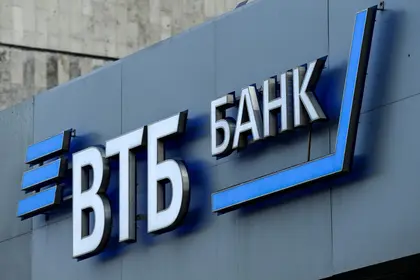The U.S. rolled out a fresh set of sanctions on Dec. 15, targeting various companies and Russian-appointed proxies in Ukraine.
Let’s take a look at the types of sanctions applied so far and who will be affected following the latest announcement.
JOIN US ON TELEGRAM
Follow our coverage of the war on the @Kyivpost_official.
What sanctions have been implemented so far?
To be blunt, there have been far too many to list here. Since Russia launched its illegal invasion of Ukraine in February, countless businesses, organizations, and individuals have been sanctioned, and not only by the U.S.
In September, the European Commission announced a new package of sanctions against Russia following widespread outrage over sham referenda held in Russian-occupied territories in eastern Ukraine.
“We do not accept the sham referenda and any kind of annexation in Ukraine,” responded European Commission President, Ursula von der Leyen, “and we’re determined to make the Kremlin pay for this further escalation.”
The package – the eighth passed by the Commission so far – saw over 1,300 Russian individuals and entities hit, and promised that Russian trade would be further restricted, with new import bans on various Russian products.
“This will keep Russian products out of the European market and deprive Russia of an additional seven billion euros in revenues,” she added.

ISW Russian Offensive Campaign Assessment, January 20, 2025
In a statement delivered in Brussels, EU foreign policy chief Josep Borrell said that the new sanctions list “targets key decision makers, oligarchs, senior military officials and propagandists responsible for undermining Ukraine’s territorial integrity.”
The U.K. has also imposed sanctions on Russia and associates linked to Russian President Vladimir Putin, seizing property and assets in what former Prime Minister Boris Johnson described as the “most severe” sanctions Britain had ever imposed on a foreign nation.
In a statement issued on Dec. 15, the U.S. Department of State also reaffirmed its commitment to punishing Putin.
“The United States is committed to working alongside our allies and partners to further impose severe consequences on President Putin and his enablers for Russia’s unconscionable war against Ukraine,” the statement said, before going on to list yet another string of Russian companies and individuals that would be hit.
So, who’s being targeted by the new sanctions?
Russian heads of regions, along with over 20 Russian governors, are included on the list, which can be read in full here.
In a statement issued on Dec. 15, U.S. Secretary of State Antony Blinken said that the governors “oversee and enforce the conscription of citizens in response to Russia’s recent mobilization order and were “helping to advance Russia’s invasion and control of Ukrainian territory.”
“We also are designating six proxy authorities and an entity operating on behalf of the Kremlin in Ukraine,” he continued. “This includes the former ‘Minister of Internal Affairs’ of the so-called Donetsk People’s Republic, who led a battalion that fought in Mariupol and oversees the operations of filtration camps that facilitate the forced relocation of Ukraine’s citizens to Russia”.
The sanctions also target the board of members of Russian railways and 17 subsidiaries of the VTB Bank.
“OFAC [Office of Foreign Assets Control] is adding 17 subsidiaries of VTB Bank Public Joint Stock Company [Russia’s second-largest bank] to the SDN [Specially Designated Nationals and Blocked Persons] List,” the Department of the U.S. Treasury’s Office of Foreign Assets Control said in a statement issued on Dec 15.
“VTB Bank was designated in February 2022 and all entities owned 50 percent or more, directly or indirectly, by VTB Bank are blocked by operation of law… even if not designated by OFAC.”
Additionally, Vladimir Potanin, described by Blinken as “one of Russia’s wealthiest oligarchs and a close associate of President Putin,” has been sanctioned, along with a bank his company acquired earlier this year. Three of Potanin’s family members have also been sanctioned, Blinken confirmed, while his luxury yacht has been listed as ‘blocked property’.
Are sanctions working?
Yes and no. Wider sanctions against Russia have certainly had an impact – but not as much as initially expected.
Forecasters predict that Russian GDP for 2022 will likely only fall by about 3.3−3.4 percent, while the end of the year will likely see inflation in Russia reach around 12 percent.
Whilst of course not good for Russia, it’s a far cry from forecasts made in the spring, that predicted a drop in GDP of at least seven percent and prices to rise by up to 28 percent.
With regards to foreign direct investment into Russia, which earlier in the year was forecast to drop as much as 25-28 percent by the end of the year due to companies cutting ties with Russia, estimates now say it will fall by a mere 1 percent.
So, to wrap up, it seems that although sanctions are at the very least a moral necessity, and indeed, some oligarchs won’t be too happy with a pinch to their pockets and the loss of their yachts, only the continued supply of weapons to Ukraine and the grit and determination of its brave troops will bring an end to this war.
You can also highlight the text and press Ctrl + Enter










